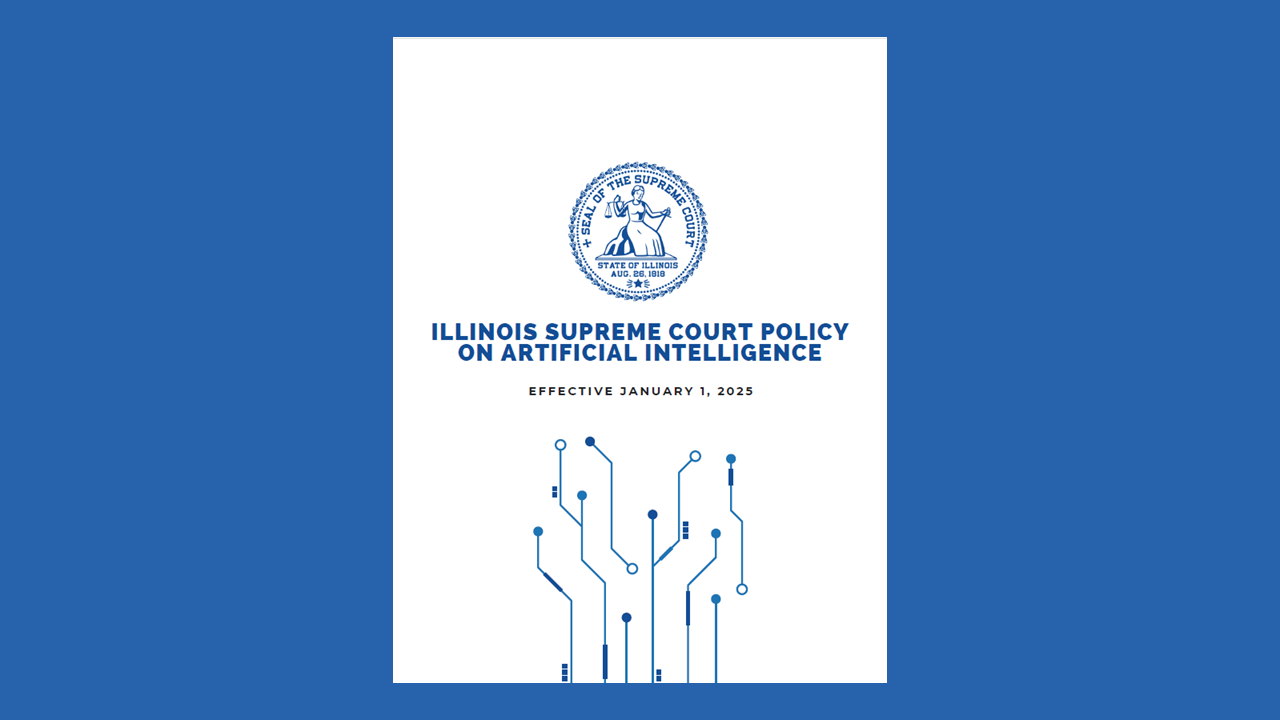
For
many
people,
the
end
of
the
year
is
a
mad
rush
to
wrap
things
up
before
the
holidays,
and
so
it
was
for
the
FDA.
Notable
regulatory
decisions
include
the
first
drug
approval
for
a
prevalent
chronic
condition
and
a
novel
regenerative
medicine
approach
to
help
trauma
patients.
In
one
case,
a
new
drug
approval
comes
as
its
developer
takes
on
a
new
identity
in
the
new
year.
Here’s
a
look
back
at
some
highlights
from
a
busy
regulatory
month:
Notable
Firsts
—The
prevalent
sleeping
disorder
obstructive
sleep
apnea
has
historically
been
managed
with
a
medical
device
that
helps
breathing.
Eli
Lilly’s
Zepbound
is
now
the
first
FDA-approved
drug
treatment
for
the
chronic
condition.
Obesity
is
a
risk
factor
for
sleep
apnea
and
clinical
trial
results
showed
that
weight
reductions
from
treatment
with
Zepbound
were
accompanied
by
breathing
improvement.
Approval
in
obstructive
sleep
apnea
adds
another
potential
blockbuster
indication
for
a
metabolic
medication
that
has
fast
become
one
of
Lilly’s
top-selling
products.
—Patients
who
have
the
rare
inherited
metabolic
disorder
familial
chylomicronemia
syndrome
lack
the
ability
to
break
down
triglycerides,
a
type
of
fat
from
food.
The
only
way
to
avoid
potentially
fatal
complications
to
the
pancreas
is
by
maintaining
an
extremely
restrictive
diet.
Approval
of
Ionis
Pharmaceuticals’
olezarsen
gives
patients
a
therapeutic
option.
The
once-monthly
injected
genetic
medicine,
which
is
designed
to
block
the
body’s
production
of
a
liver
protein
that
regulates
triglyceride
metabolism,
will
be
marketed
under
the
brand
name
Tryngolza.
Ionis
previously
brought
drugs
through
late-stage
development
and
commercialization
under
partnerships
with
larger
companies.
Tryngolza
will
be
the
first
product
Ionis
commercializes
on
its
own.
—When
trauma
to
an
arm
or
leg
requires
replacement
of
a
blood
vessel,
the
standard
treatment
is
grafting
a
vein
from
the
patient
or
implanting
a
synthetic
vein.
Now
there’s
a
new
regenerative
medicine
option.
Humacyte
won
FDA
approval
for
Symvess,
a
bioengineered
blood
vessel
for
restoring
blood
flow
to
avoid
the
loss
of
a
limb
when
grafting
a
vein
from
the
patient
is
not
feasible.
Here’s
more
about
the
biotech’s
regenerative
technology.
—Mesoblast’s
regulatory
approval
was
a
long
time
coming.
In
2020
and
2023,
the
FDA
turned
down
the
Australian
company’s
application
for
remestemcel,
an
allogeneic
cell
therapy
for
graft
versus
host
disease,
an
immune
response
that
develops
when
donor
T
cells
attack
the
recipient’s
cells
following
a
transplant
procedure.
Remestemcel,
brand
name
Ryoncil,
is
made
from
mesenchymal
stromal
cells
sourced
from
the
bone
marrow
of
healthy
donors.
The
product’s
approval
covers
acute
graft
versus
host
disease
that
is
refractory
to
treatment
with
steroids
in
patients
age
2
months
and
older.
It’s
the
first
affirmative
regulatory
decision
for
a
cell
therapy
made
from
mesenchymal
stromal
cells.
Approvals
in
Immunology
—Vtama,
an
Organon
drug
acquired
from
Roivant
Sciences
earlier
this
year,
received
FDA
approval
as
a
treatment
for
atopic
dermatitis
in
adults
and
children
age
2
and
older.
The
drug
is
topical
cream
that
was
initially
approved
in
2022
as
a
treatment
for
plaque
psoriasis.
Approval
in
atopic
dermatitis
brings
the
product
to
a
much
larger
dermatologic
indication,
albeit
one
served
by
many
branded
and
generic
medications.
—In
other
atopic
dermatitis
news,
Galderma
landed
FDA
approval
for
nemolizumab,
brand
name
Nemluvio.
The
drug
is
an
antibody
designed
to
block
IL-31,
a
signaling
protein
associated
with
the
itch
and
inflammation
of
the
chronic
skin
disorder.
FDA
approval
of
Nemluvio
covers
use
of
the
drug
in
patients
age
12
and
older
who
have
moderate-to-severe
atopic
dermatitis.
It’s
the
second
approval
in
the
past
year
for
Nemluvio,
which
was
first
approved
over
the
summer
as
a
treatment
for
prurigo
nodularis.
Rare
Disease
Regulatory
Decisions
—Neurocrine
Biosciences
received
approval
for
Crenessity,
a
treatment
for
the
rare
inherited
hormone
disorder
congenital
adrenal
hyperplasia.
The
small
molecule
helps
bring
the
hormone
imbalance
back
to
more
normal
levels.
The
FDA
approved
a
pill
formulation
for
adults
and
an
oral
solution
for
pediatric
patients.
Analysts
project
Crenessity
could
achieve
blockbuster
sales,
pending
regulatory
approvals
in
other
countries.
—Novo
Nordisk
is
best
known
for
metabolic
medicines,
but
its
rare
disease
portfolio
is
getting
a
boost
with
FDA
approval
of
Alhemo,
a
drug
that
reduces
bleeding
episodes
in
patients
with
either
hemophilia
A
or
B.
Alhemo,
known
in
development
as
concizumab,
is
an
antibody
designed
to
bind
to
TFPI,
preventing
that
protein
from
blocking
factor
Xa,
a
different
protein
that
plays
a
role
in
blood
clotting.
That’s
the
same
mechanism
of
action
as
Pfizer’s
Hympavzi,
which
won
its
FDA
approval
in
October.
Both
drugs
are
subcutaneous
injections
that
provide
alternatives
to
intravenously
infused
hemophilia
therapies.
But
Pfizer’s
once-weekly
Hmypavzi
has
a
dosing
edge
over
Alhemo,
which
must
be
injected
once
daily.
—Vertex
Pharmaceuticals
is
adding
a
new
cystic
fibrosis
(CF)
drug
to
its
portfolio
with
FDA
approval
of
Alyftrek,
which
combines
three
compounds
in
a
single
therapy.
Like
Vertex’s
other
CF
therapies,
Alyftrek
is
a
modulator
of
the
CFTR
a
protein
that
regulates
the
movement
of
chloride
ions
into
and
out
of
cells.
Alyftrek’s
approval
is
based
on
clinical
data
comparing
the
once-daily
therapy
to
Trikafta,
a
Vertex
triple
combination
drug
initially
approved
in
2019
as
a
twice-daily
CF
treatment.
Results
showed
Alyftrek
was
non-inferior
to
Trikafta
on
a
key
measure
of
lung
function
and
was
superior
in
reducing
sweat
chloride
levels,
which
is
a
surrogate
indicator
of
the
function
of
CFTR
proteins.
Besides
the
dosing
advantage,
Alyftrek
addresses
31
additional
mutations
that
are
not
addressable
by
other
CFTR
modulators.
The
Dec.
20
approval
of
Alyftrek
came
nearly
two
weeks
ahead
of
the
Jan.
2
target
date
for
a
regulatory
decision.
Developments
in
Cancer
Drugs
—The
FDA
awarded
accelerated
approval
to
Merus
Therapeutics
drug
zenacutuzumab
as
a
treatment
for
advanced
cases
of
two
types
of
cancer:
non-small
cell
lung
cancer
and
pancreatic
adenocarcinoma.
It’s
the
first
approval
for
a
drug
that
addresses
a
genetic
signature
called
an
NRG1
gene
fusion.
Netherlands-based
Merus
will
market
the
bispecific
antibody
under
the
brand
name
Bizengri.
In
a
deal
struck
days
prior
to
the
approval
announcement,
Partner
Therapeutics
licensed
U.S.
commercialization
rights
to
Bizengri.
—The
blockbuster
AstraZeneca
drug
Imfinzi
expanded
its
FDA-approved
uses
to
include
limited-stage
small
cell
lung
cancer
that
has
not
progressed
following
concurrent
platinum-based
chemotherapy
and
radiation
therapy.
The
checkpoint
inhibitor
was
first
approved
in
2017
for
bladder
cancer
and
added
extensive-stage
lung
cancer
as
a
new
indication
in
2020.
The
drug’s
latest
approval
is
based
on
Phase
3
results
showing
a
27%
reduction
in
the
risk
of
death
compared
to
a
placebo.
AstraZeneca
said
the
FDA
decision
makes
Imfinzi
the
first
immunotherapy
approved
for
limited-stage
small
cell
lung
cancer.
—Xcovery
Holdings
drug
ensartinib,
brand
name
Ensacove,
was
approved
to
treat
adults
with
advanced
cases
of
non-small
cell
lung
cancer
that
is
positive
for
ALK
mutations.
Patients
prescribed
the
once-daily
pill
must
not
have
previously
received
an
ALK
inhibitor.
—Pfizer
cancer
drug
Braftovi
landed
accelerated
approval
as
a
first-line
treatment
for
metastatic
colorectal
cancer
driven
by
the
BRAF
V600E
mutation.
The
approval
covers
use
of
the
drug
in
combination
with
Eli
Lilly’s
Erbitux
and
the
chemotherapy
regimen
referred
to
as
FOLFOX,
both
standard
colorectal
cancer
therapies.
Braftovi,
a
small
molecule
inhibitor
of
BRAF
V600E,
was
initially
approved
in
2018
for
advanced
cases
of
melanoma.
The
drug
came
from
Pfizer’s
2019
acquisition
of
Array
Biopharma.
—Tevimbra,
a
cancer
immunotherapy
developed
by
BeiGene,
received
FDA
approval
as
a
first-line
treatment
for
gastric
and
gastroesophageal
junction
cancers
when
used
in
combination
with
chemotherapy.
It’s
the
second
FDA
approval
for
the
checkpoint
inhibitor,
which
was
approved
last
March
for
treating
advanced
or
metastatic
esophageal
squamous
cell
carcinoma
after
prior
treatment
with
chemotherapy.
The
new
year
means
a
new
identity
for
BeiGene.
The
cancer
drug
developer
is
changing
its
name
to
BeOne
Medicines.
Starting
Jan.
2,
the
company’s
stock
symbol
on
the
Nasdaq
will
be
“ONC.”
Rejections,
Warnings
&
More
Bad
News
in
Biotech
—Astellas
Pharma’s
bid
to
bring
patients
less-frequent
eye
injections
of
its
drug
Izervay
was
rejected
by
the
FDA.
Izervay,
approved
for
treating
geographic
atrophy
in
2023,
is
administered
monthly
to
slow
progression
of
the
vision-loss
disorder.
Astellas
sought
approval
for
every-other-month
dosing
based
on
two-year
Phase
3
data.
According
to
Astellas,
no
safety
benefit/risk
issues
were
cited
but
the
FDA
took
issue
with
a
statistical
matter
related
to
labeling
language
proposed
by
the
company.
The
rejection
will
limit
Izervay’s
ability
to
compete
against
Apellis
Pharmaceuticals’
geographic
atrophy
drug
Syfovre,
which
is
approved
for
both
monthly
and
every-other-month
dosing.
—In
other
Astellas
news,
the
label
for
menopause
drug
Veozah
now
sports
a
black
box
warning
for
the
risk
of
serious
liver
injury.
The
warning
follows
a
FDA
safety
communication
issued
in
September
after
a
postmarketing
report
of
a
patient
who
developed
signs
and
symptoms
of
liver
injury
after
taking
the
once-daily
pill
for
about
40
days.
Veozah
won
FDA
approval
in
2023
as
the
first
in
a
new
class
of
therapies
for
menopause.
—Applied
Therapeutics
received
a
double
dose
of
bad
regulatory
news.
First
the
FDA
rejected
the
biotech’s
application
for
govorestat,
a
drug
developed
as
a
treatment
for
the
rare
metabolic
disease
galactosemia.
According
to
Applied,
the
agency
cited
“deficiencies
in
the
clinical
application.”
Days
after
the
FDA
complete
response
letter,
the
FDA
sent
Applied
a
warning
letter.
The
trial
and
the
drug
are
redacted
in
the
public
version
of
the
letter,
but
in
a
regulatory
filing,
Applied
acknowledged
the
FDA’s
concerns
are
about
the
govorestat
galactosemia
trial.
Applied
said
the
warning
letter
identified
issues
with
electronic
data
capture
and
a
dosing
error
in
the
dose-escalation
portion
of
the
study
—
both
of
which
the
company
believed
it
had
already
addressed
with
the
agency.
Applied
said
it
would
respond
to
the
FDA
warning
letter.
—Bad
news
keeps
stacking
up
for
Intercept
Pharmaceuticals
and
its
drug,
Ocaliva,
a
treatment
for
the
rare
liver
disease
primary
biliary
cholangitis
(PBC).
On
Dec.
12,
the
FDA
issued
a
safety
alert,
warning
of
the
risk
of
serious
liver
injury
in
patients
without
advanced
liver
cirrhosis.
The
alert
came
one
month
after
the
FDA
turned
down
Intercept’s
application
seeking
full
approval
for
Ocaliva,
which
won
its
accelerated
approval
in
PBC
in
2016.
The
FDA’s
rejection
letter
for
the
drug
cited
safety
concerns.
When
Ocaliva
first
reached
the
market,
it
was
the
only
FDA-approved
second-line
treatment
for
PBC.
In
the
past
year,
drugs
from
Ipsen
and
Gilead
Sciences
have
each
won
accelerated
approvals
as
new
second-line
therapies
for
the
rare
disease.
Two
weeks
after
the
FDA
turned
down
full
approval
of
Ocaliva,
the
European
Commission
revoked
the
conditional
marketing
authorization
for
the
drug.
Advanz
Pharma
holds
rights
to
Ocaliva
in
Europe.
The
company
said
the
commission
decision
is
subject
to
an
ongoing
annulment
procedure
in
the
EU’s
General
Court
and
a
ruling
is
expected
in
2025.
—The
FDA
turned
down
Zealand
Pharma’s
glepaglutide
as
a
treatment
for
short
bowel
syndrome,
a
rare
disorder
that
develops
when
the
small
intestine
is
damaged
or
shortened,
making
it
difficult
for
the
organ
to
absorb
nutrients.
The
drug
is
a
long-acting
GLP-2
analog
intended
to
enhance
the
intestine’s
ability
to
absorb
nutrients,
reducing
patients’
dependence
on
intravenous
feeding.
According
to
Zealand,
the
FDA
said
the
application
needed
more
evidence
of
efficacy
and
safety.
The
company
said
it
would
discuss
the
letter
with
the
FDA
and
proceed
with
plans
to
seek
European
approval
in
2025.
—Lexicon
Pharmaceuticals
came
up
short
in
its
bid
to
expand
approval
of
its
drug,
sotagliflozin
(brand
name
Zynquista),
to
include
the
treatment
of
adults
with
type
1
diabetes
and
chronic
kidney
disease.
The
FDA’s
Dec.
20
rejection
of
the
drug
followed
a
negative
FDA
advisory
committee
vote
in
October.
The
FDA
approved
sotagliflozin
last
year
as
a
treatment
for
heart
failure;
it’s
marketed
in
this
indication
under
the
brand
name
Inpefa.
—Johnson
&
Johnson
received
a
complete
response
letter
for
its
injectable
version
of
Rybrevant,
a
drug
that
treats
cancer
driven
by
EGFR
mutations.
Intravenously
infused
Rybrevant
was
approved
in
2021
as
a
treatment
for
non-small
cell
lung
cancer.
The
injectable
version
is
made
with
technology
from
Halozyme.
J&J
said
the
FDA
letter
flagged
manufacturing
issues
and
did
not
cite
any
concerns
about
the
new
formulation
or
its
safety
and
efficacy.
Photo:
Sarah
Silbiger,
Getty
Images













